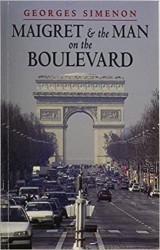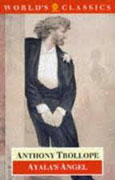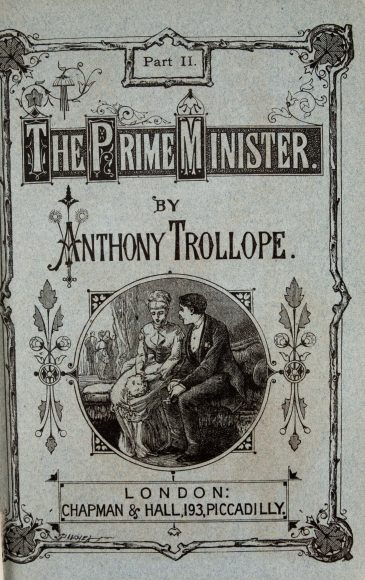February 6, 2024
For our last dally (for now, at least) into Anthony Trollope’s novel The Prime Minister, we’re ending with two of the (in my opinion, ‘natch) great characters in Trollope’s oeuvre, and perhaps in English fiction itself, Plantagenet Palliser and Glencora Palliser, his wife (Lord and Lady and then Duke and Duchess if you’re feeling formal). Their marriage and early days kick off the whole Palliser series of novels, and they surface here and there throughout the series, sometimes as bit parts, sometimes more supporting, sometimes starring. Which means it’s only fitting we end with a little brandy banter between them (don’t, of course, miss the earlier The Prime Minister Cocktail Talks, part I, part II, and part III, to learn more about the book, and for that matter, why not spend some with all the Anthony Trollope Cocktail Talks – you’ll have fun. Promise)!
“If you ask me, Plantagenet, you know I shall tell the truth.”
“Then tell the truth.”
“After drinking brandy so long I hardly think that 12s. claret will agree with my stomach. You ask for the truth, and there it is,—very plainly.”
“Plain enough!”
“You asked, you know.”
“And I am glad to have been told, even though that which you tell me is not pleasant hearing. When a man has been drinking too much brandy, it may be well that he should be put on a course of 12s. claret.”
“He won’t like it; and then,—it’s kill or cure.”
–Anthony Trollope, The Prime Minister
Tags: After drinking brandy so long I hardly think that 12s. claret will agree with my stomach, Anthony Trollope, Brandy, Claret, Cocktail Talk, Part IV, The Prime Minister, Trollope
Posted in: Anthony Trollope, Brandy, Cocktail Talk, Wine
September 19, 2023
Out final Vanity Fair Cocktail Talk, before we leave the legendary Thackeray (at least until I re-read or read another book of his!) in whatever afterlife bar he’s hanging out in today. But before leaving him and the book, we’re going to go along with one of the book’s large cast of characters for what I can only call a mighty mighty impressive day of drinking and eating. It’s, well, legendary (as are the Vanity Fair Cocktail Talks Part I, Part II, and Part III, which you should read).
Having partaken of a copious breakfast, with fish, and rice, and hard eggs, at Southampton, he had so far rallied at Winchester as to think a glass of sherry necessary. At Alton he stepped out of the carriage at his servant’s request and imbibed some of the ale for which the place is famous. At Farnham he stopped to view the Bishop’s Castle and to partake of a light dinner of stewed eels, veal cutlets, and French beans, with a bottle of claret. He was cold over Bagshot Heath, where the native chattered more and more, and Jos Sahib took some brandy-and-water; in fact, when he drove into town he was as full of wine, beer, meat, pickles, cherry-brandy, and tobacco as the steward’s cabin of a steam-packet.
— William Thackeray, Vanity Fair
Tags: ale, Brandy, brandy and water, cherry brandy, Claret, Cocktail Talk, Part IV, sherry, Vanity Fair, William Makepeace Thackeray
Posted in: beer, Brandy, Cocktail Talk, Wine
November 23, 2021
 Another quote from the Chief Inspector Maigret yarn I’ve been most recently reading (as opposed to all of those I’ve read in the past: check out all the Maigret Cocktail Talks to get a view into some of them – at least don’t miss the Maigret and the Man on the Boulevard Part I Cocktail Talk, to learn more about this particular book by George Simenon), one where our main character sits down in a very serious and thinking mood at his favorite of all Parisian spots – or the one he visits the most, which is saying something, though it is right across from his office – and gives the waiter a little of the Maigret-ness so many criminal have to deal with.
Another quote from the Chief Inspector Maigret yarn I’ve been most recently reading (as opposed to all of those I’ve read in the past: check out all the Maigret Cocktail Talks to get a view into some of them – at least don’t miss the Maigret and the Man on the Boulevard Part I Cocktail Talk, to learn more about this particular book by George Simenon), one where our main character sits down in a very serious and thinking mood at his favorite of all Parisian spots – or the one he visits the most, which is saying something, though it is right across from his office – and gives the waiter a little of the Maigret-ness so many criminal have to deal with.
“What’s the Veau Marengo like?”
“Excellent, Monsieur Maigret.”
Without realizing it, he was subjecting the waiter to a look that could not have been sterner if he had been a suspect under interrogation.
“Beer, sir?”
“No. A half-bottle of claret.”
He was just being perverse. If the waiter had suggested wine, he would have ordered beer.
–George Simenon, Maigret and the Man on the Boulevard
Tags: beer, Claret, Cocktail Talk, George Simenon, Inspector Maigret, Maigret, Maigret and the Man on the Boulevard, Part II, Veau Marengo
Posted in: beer, Cocktail Talk, Wine
February 25, 2020
 Well, as I said recently (as I’m sure you recall), I’ve been reading a book every pulp, detective, mystery, American literature lover should read, The Giant Collection of the Continental Op. By dashing (okay, I’m not the first to say this) Dashiell Hammett, author of, well, if you don’t know I feel for you, cause the list includes some of the best works from last century (including The Maltese Falcon, The Thin Man, and The Glass Key, all seminal works of words), in this giant collection, you’ll find a huge host of stories featuring his un-named, pudgy (but tough), old-ish (but tough), work-a-day detective, and all keep the pace up, and often the body-count. A great read, I must say, so great that I had to have two Cocktail Talks from it. If you missed the first (the Golden Horseshoe Cocktail Talk) then go check it. This second one isn’t quite as drunk-y, and includes a lot of food. But I couldn’t miss it, cause it has the Continental Op drinking crème de menthe, which is both awesome and hard to picture.
Well, as I said recently (as I’m sure you recall), I’ve been reading a book every pulp, detective, mystery, American literature lover should read, The Giant Collection of the Continental Op. By dashing (okay, I’m not the first to say this) Dashiell Hammett, author of, well, if you don’t know I feel for you, cause the list includes some of the best works from last century (including The Maltese Falcon, The Thin Man, and The Glass Key, all seminal works of words), in this giant collection, you’ll find a huge host of stories featuring his un-named, pudgy (but tough), old-ish (but tough), work-a-day detective, and all keep the pace up, and often the body-count. A great read, I must say, so great that I had to have two Cocktail Talks from it. If you missed the first (the Golden Horseshoe Cocktail Talk) then go check it. This second one isn’t quite as drunk-y, and includes a lot of food. But I couldn’t miss it, cause it has the Continental Op drinking crème de menthe, which is both awesome and hard to picture.
Two men servants waited on us. There was a lot of food and all of it was well turned out. We are caviar, some sort of consume, sand dabs, potatoes and cucumber jelly, roast lamb, corn and string beans, asparagus, wild deck and hominy cakes, artichoke-and-tomato salad, and orange ice. We drank white wine, claret, Burgundy, coffee, and crème de menthe.
–Dashiell Hammett, The Farewell Murder
July 19, 2011
 Ayala’s Angel sounds a bit like a not-tawdry-enough romance novel that you’d find in the quarter bin of a bookstore specializing in romance trade-ins and the occasional “art” book. While it does have a bit of romance, if you decided not to read the book solely because of the connotations involved with the title, you’d be one sad reader, pal. Cause it’s an Anthony Trollope number, and while it has its fair share of yucks and laffs (perhaps it is as gently witty towards its main characters as any Trollope I’ve read), they’re surrounded by that eye for everyday detail that makes Trollope (along with the fact that his characters are memorable, his prose is sweet, etc, etc) so enjoyable to read. And the fact that it contains the following quote that references a particular vintage of claret (Trollope was so fond of this winery he bought–as the book’s notes tell us–24 bottles in one go) makes the book even better. Any reverence for a particular booze bears repeating:
Ayala’s Angel sounds a bit like a not-tawdry-enough romance novel that you’d find in the quarter bin of a bookstore specializing in romance trade-ins and the occasional “art” book. While it does have a bit of romance, if you decided not to read the book solely because of the connotations involved with the title, you’d be one sad reader, pal. Cause it’s an Anthony Trollope number, and while it has its fair share of yucks and laffs (perhaps it is as gently witty towards its main characters as any Trollope I’ve read), they’re surrounded by that eye for everyday detail that makes Trollope (along with the fact that his characters are memorable, his prose is sweet, etc, etc) so enjoyable to read. And the fact that it contains the following quote that references a particular vintage of claret (Trollope was so fond of this winery he bought–as the book’s notes tell us–24 bottles in one go) makes the book even better. Any reverence for a particular booze bears repeating:
But before the end of the first fortnight there grew upon her a feeling that even bank notes become tawdry if you are taught to use them as curl-papers. It may be said that nothing in the world is charming unless it be achieved at some trouble. If it rained ’64 Leoville–which I regard as the most divine of nectars–I feel sure that I should never raise it to my lips.
—Ayala’s Angel, Anthony Trollope


























